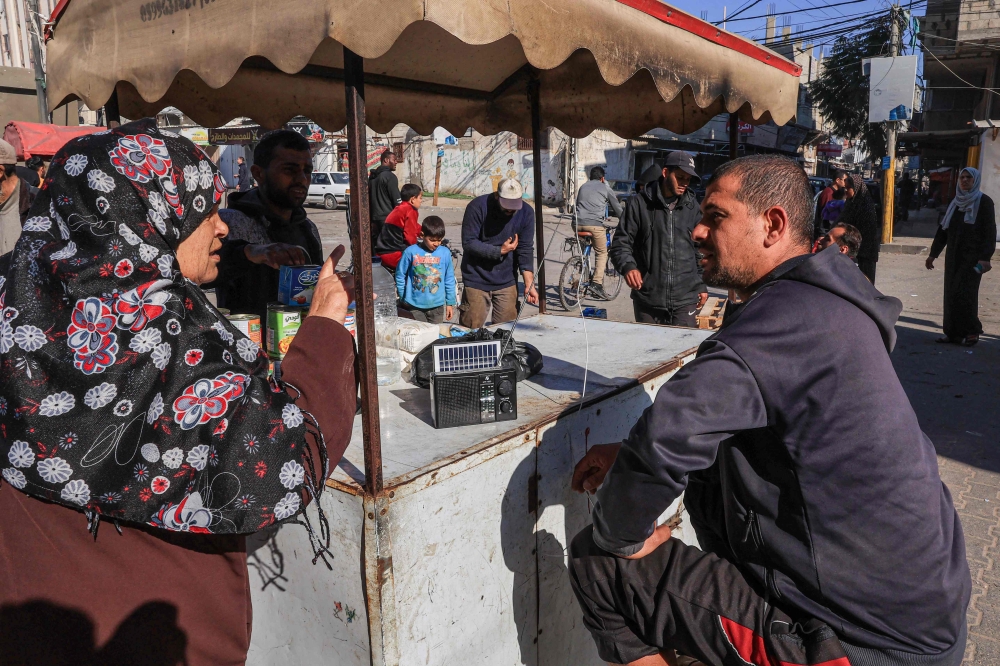- Web
- Feb 20, 2026
Radios resurge as essential lifelines in conflict-stricken Gaza
-

- Web Desk
- Dec 20, 2023

GAZA STRIP: Amidst the turmoil in war-torn Gaza, radio sets have become an unexpected lifeline. Mahmud Al-Daoudi, owner of a shop, now witnesses the once-neglected radio sets flying off the shelves as they offer a vital connection to the outside world for customers in the besieged territory, AFP reported.
With power cuts exacerbated by Israel’s restrictions on electricity and fuel supplies, Gaza’s 2.4 million residents endure prolonged blackouts. In this challenging environment, the radio emerges as a resilient source of information, especially after phone and internet services have been severely disrupted.
Can the US force Taliban to lift ban on girls’ education?
Israel began its devastating air and ground offensive following the October 7 Hamas attacks, which killed around 1,140 people in southern Israel, according to an AFP tally based on Israeli figures.
As traditional means of staying informed, like computers and televisions, become impractical without generators or solar panels, the radio’s battery-powered reliability and long life have made it an indispensable commodity.
Stations such as BBC Arabic and Al Jazeera have launched special channels to help keep displaced people up to date with the news. But to keep up with the news, there’s always the battery-powered radio. “We had a full stock but we’ve been completely out of them since the first week” of the war, Daoudi said.
With the phone and internet cuts, “radio is the only way to find out what’s going on,” he said.
The long battery life is another plus, he said from his store in Rafah, at the southern end of the territory. Before the war, a radio cost around 25 shekels ($7) — now, they go for around 60 shekels ($16). “We’ve even resold the broken radios people returned to us,” the 33-year-old said.
South Korea reports eight outbreaks of H5N6 bird flu
It’s impossible to order new stock, with only limited humanitarian aid trickling into the territory. “People want to follow the news, hear where the shelling is taking place and find out about the fate of their families,” said Hussein Abu Hashem, who has run out of radios at his shop too.
According to the UN, 1.9 million Palestinians have been displaced since the start of the war, around 85 percent of the population. Many of them are now living in makeshift camps in the south of the territory where they lack basic supplies.




